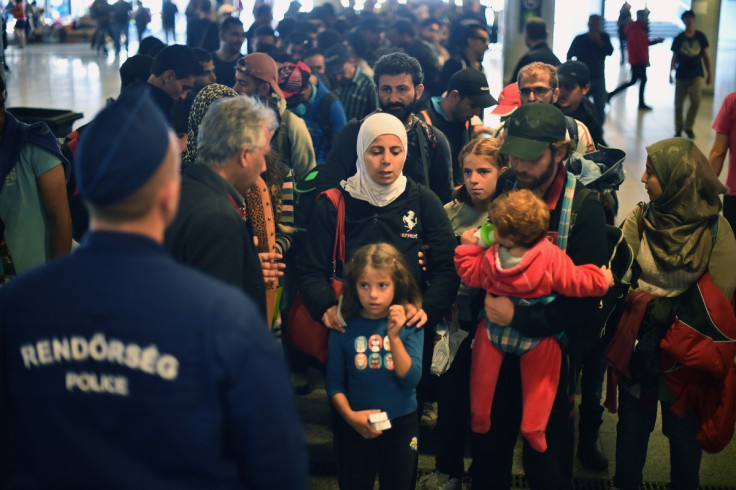Migrant crisis: Border checks and military action on EU table amid thousands of new arrivals

A record number of asylum seekers have entered Hungary as European Union interior ministers meet in Brussels to discuss the massive influx of people that is shaking the 28-nation bloc. More than 5,600 refugees crossed from Serbia on 13 August, the highest number of arrivals in a single day recorded by Hungarian police since the beginning of the crisis.
The increase was partially fuelled by a crackdown on illegal immigration announced by prime minister Viktor Orbán. Many scrabbled to get into the country before a new law saying that those found illegally crossing into Hungary can face jail terms comes into force, later this week.
Most are headed to northern Europe and particularly Germany, where vice chancellor Sigmar Gabriel said the country is expecting up to one million migrants and refugees to arrive this year, raising a previous estimate of 800,000.
Austria, which has also seen thousands passing through its territory, said it could deploy the military at its own border with Hungary to control the flow. Chancellor Werner Faymann said the government approved a request for about 2,200 servicemen to assist police. The development came as more than 16,000 migrants streamed into eastern Austria on 13 and 14 September.
Earlier at the weekend, it was Berlin that temporarily reintroduced border controls with Austria after more than 6,000 people crossed into the country. "The aim of this measure is to limit the current influx to Germany and to return to orderly entry procedures," interior minister Thomas de Maiziere said.
"The great readiness to help that Germany has shown in recent weeks ... must not be overstretched," he added. The move was charged with causing traffic jams at crossings, while train services between the two neighbours resumed after a weekend suspension.
"We hope that we will need the border controls only for a short time and that our partners will make clear that they are prepared to share in Europe's responsibility," added Gabriel.
Shipwreck
Border closures have far-reaching implications within the EU as they undermine free movement principles enshrined in the Schengen Agreement, which has become the object of debate since the beginning of the crisis, with some governments arguing it should be suspended.
In Greece, the coastguard said it was still searching for possible survivors of a shipwreck that claimed the lives of at least 34 refugees, including 15 children. Rescuers pulled 68 people alive from the sea, while 30 more managed to swim to the shores of the island of Farmakonisi, where the wooden boat that left from Turkey was heading when it sunk.
Greek authorities said 1,429 people were safely brought to Greek shores after being rescued at sea in 58 separate incidents from over the past three days.
No fresh arrivals or incoming ship sightings were recorded in Italy over the past two days, the Italian coastguard said. Reasons for the slowdown were not immediately clear, although bad weather conditions were likely to have played a role. "The sea is rough," a coastguard spokesperson said. "But it's still unusual."
Meanwhile, in Brussels EU interior ministers were due to hold an emergency meeting on the migrant crisis. On the table are plans to redistribute 160,000 asylum seekers from Italy, Greece and Hungary to other member states and possible measures to better secure the union's outer borders and fight human smugglers. Diplomatic sources told AFP governments were ready to give the green light to military action against traffickers in the Mediterranean, particualry targeting groups operating freely amid lawlessness in Libya.
More than 430,000 migrants have reached Europe by sea so far in 2015 according to the International Organisation for Migration (IOM). Most (about 310,000) have arrived in Greece, while Italy has been the second port of entry, receiving some 121,000 people since January. More than 2,600 have died on the way.
© Copyright IBTimes 2025. All rights reserved.




















